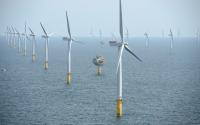Revision of Success of offshore wind power industry depends on U.S. ratification of UNCLOS from Wed, 04/03/2013 - 22:17
Quicktabs: Arguments
Wind power is a rapidly growing source of alternative energy that is likely to be a fundamental feature in the United States’ energy future.8 The success of traditional terrestrial wind turbines combined with an increasing demand for alternative energy has led to increased proposals for developing offshore wind resources.9 Because oceans and seas are governed by a wide body of treaties, the construction of offshore wind installations will raise questions of international law.10 Ratification of the United Nations Convention on the Law of the Sea (“UNCLOS”)11 by the United States would clarify the issues of international law for U.S. development of offshore wind power.12
UNCLOS is a multinational treaty defining and codifying the law of the sea. On May 15, 2007, President Bush submitted UNCLOS to the Senate for its advice and consent.13 The Senate’s ratification of UNCLOS will secure U.S. interests in the development of offshore wind power by providing a uniform body of law for offshore development. Most importantly, it will define jurisdiction, and provide for dispute resolution.
UNCLOS contains provisions that provide rights necessary or advantageous to the development of offshore wind power. The treaty contains requirements that pose hurdles to offshore wind as well. The advantages, however, far outweigh the hurdles. Any downsides the treaty might create can be accommodated and will not block development, while the benefits of the treaty are necessary for the development of wind power, especially outside the territorial waters. Because UNCLOS has significant benefits and only limited burdens, the United States should ratify UNCLOS to secure offshore wind interests.
The future of offshore wind will likely depend on ratification of UNCLOS. Offshore wind is in its infancy in the United States, but has great potential to supply a large portion of the nation’s energy needs.66 To accomplish this development, the United States will need to expand farther offshore.67 While expansion would require new advances in offshore wind technology, such expansion is economically viable.68 The incentives to pursue such expansion will likely increase as the pressure to combat global warming increases and fossil fuel prices continue to rise.69 By ratifying UNCLOS now, the United States can secure its future in offshore wind energy.
Currently, proposed offshore wind projects are located within the territorial waters. But as technology improves and the incentives for wind power increase, installations will be pushed further offshore into what would be the EEZ. But before such development can be contemplated, UNCLOS must be implemented to secure the rights to develop wind power and provide clarity in the law that governs such sites. The rights currently enjoyed by the United States to its continental shelf are not sufficient to adequately protect the exclusive and positive right to develop offshore wind projects in those waters. But ratification of UNCLOS will guarantee U.S. rights to develop the EEZ.
The benefits UNCLOS could provide to securing offshore wind energy interests is a reason to favor U.S. ratification. UNCLOS would protect the United States’ alternative energy interests within the EEZ and continental shelf.148 Wind energy is a resource that is explicitly recognized as enjoying exclusive protection within the EEZ.149 UNCLOS also provides protections for wind turbine installations within the EEZ and continental shelf.150 Furthermore, should there be a dispute between the United States and another country involving wind energy and the law of the sea, there is an established tribunal that will have jurisdiction to hear the dispute.151 Additionally, part XI of UNCLOS is no longer an obstacle to the United States.152 In light of the benefits it would provide to the development of offshore wind power by securing U.S. interests, the United States should ratify UNCLOS.153
If the US fails to ratify UNCLOS, it can still build offshore turbines within the EEZ. The problem is that there would be no internationally recognized governing law. Unsettled law leads to poor economic efficiency. The lack of a governing law in the EEZ limits the incentive to develop offshore wind projects. Current offshore projects within the territorial waters already face uncertainty in U.S. law, which has been a significant obstacle to their success. Uncertainty in the international law applicable to the EEZ may be too great a risk for developers. Developers have no reason to believe the United States would protect their interests over diplomatic relations or shipping concerns. UNCLOS provides, at the very least, a suggestion for how those disputes should be resolved and an indication for how they can be avoided, so constructing a coherent approach to developing offshore wind in the EEZ is possible.

New research published on Monday finds there is so much wind energy potential over oceans that it could theoretically be used to generate “civilization scale power” — assuming, that is, that we are willing to cover enormous stretches of the sea with turbines, and can come up with ways to install and maintain them in often extreme ocean environments.
[ More ]